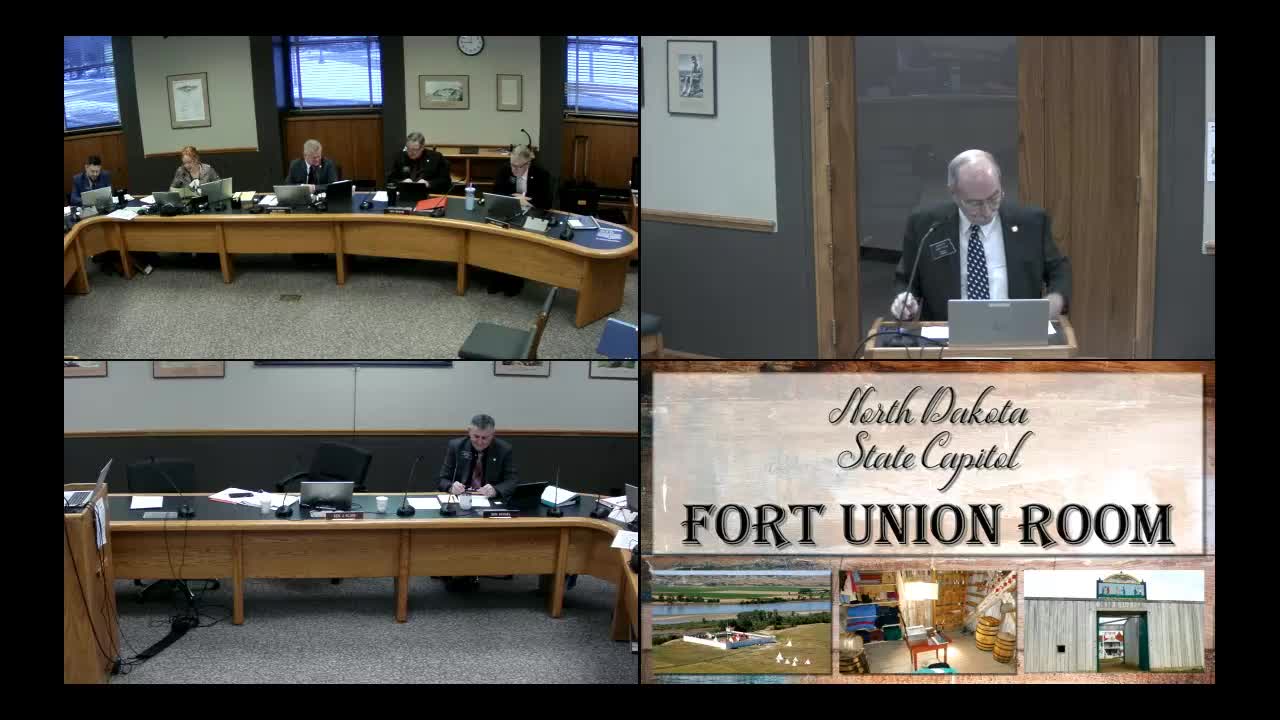Secretary of State cleanup bill would strip Social Security numbers from filings, modernize notary and trade‑name rules
Get AI-powered insights, summaries, and transcripts
Subscribe
Summary
The Senate Committee on Industry and Business heard testimony on Senate Bill 2144 on technical cleanup changes proposed by the Office of the Secretary of State.
The Senate Committee on Industry and Business heard testimony on Senate Bill 2144 on technical cleanup changes proposed by the Office of the Secretary of State. The bill would remove references to taxpayer identification numbers (for example Social Security numbers and FEINs) from several state code sections, allow electronic notice to trade‑name registrants and notaries, permit notaries to pass through third‑party technology fees for remote notarizations, and add a 30‑day process for the Secretary of State to investigate and cancel trade‑name filings that misrepresent affiliation, witnesses said.
Secretary of State staff described the bill as housekeeping intended to reduce data‑breach risk and improve customer service. "Collecting data we don't use is just bad practice," Ms. McMurdie told the committee, arguing the office stopped using Social Security and FEINs when it moved to online processing and that retaining them in statutory language creates unnecessary exposure.
The bill would also modernize notary law. Beth Herzog, Information Management Licensing and Notary Director for the Office of the Secretary of State, said remote notarization uses two‑way audiovisual technology and identity proofing to perform a notarial act when the signer is not physically present. She told senators the change would let notaries use, and be reimbursed for, vendor platforms that charge subscription or per‑transaction fees.
John Ward of the North Dakota Land Title Association told the committee his members generally support the bill and its amendment but asked for time to confirm that allowing notaries to pass along technology fees would not conflict with existing closing disclosures. He said the association needs to ensure lenders and closing notices can reflect fees that may not be known at the time of the disclosure.
Other provisions explained by Secretary of State staff include removing a 50¢ per‑page copy fee from ordinary digital search and retrieval workflows, replacing it with a $5 search/transaction fee intended to streamline online requests, and eliminating a now‑unused $5 filing for a certificate of appointment of an attorney, which the office said it had not received since 2019. The office reported the special fund collected about $10,472 in the last biennium from these fees, with $246 returned to the general fund; staff said the administrative burden of counting pages outweighs the revenue.
The bill contains a proposed amendment to the notary provision (section 4) that staff and stakeholders said narrows language that stakeholders found restrictive. Committee members took questions on cybersecurity for remote notarization vendors, the mechanics of cancelling misrepresentative trade‑name filings without court orders, and how complaints would be referred to the Attorney General's office when appropriate.
Committee members closed the hearing on Senate Bill 2144 while allowing the Land Title Association and other stakeholders additional time to provide technical feedback on the amended notary language. No committee vote on the bill was recorded at the hearing.
The Secretary of State asked the committee to adopt the bill with the suggested amendment to section 4; the committee reserved action pending stakeholder follow‑up.
